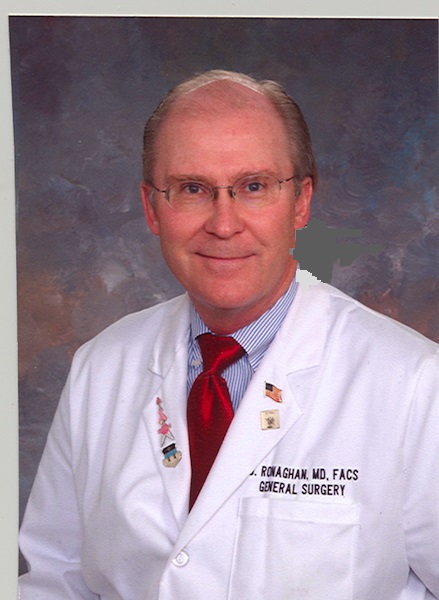“Quitting smoking before surgery?”
I've heard that people should quit smoking before any surgical procedure, even something minor. Is there any truth to this?
13 Answers
SurgeonSmoking
Yes it is true that smoking is bad for your body when surgery is in your future but smoking is best to quit all together and not allow anyone to smoke in your home at all. It does not help anyone to smoke or be around it.
Absolutely correct, complications of surgery on a smoker can be very serious. At least 4 weeks before surgery you should be smoke free. Ideally, you should give it up completely for a turn in your life towards well-being and good health.
I definitely recommend smoking cessation prior to any surgical procedure. The reason for this is multifold. The first reason is that active smoking concurrent with an operation raises the risk of an an intraoperative cardiac event (heart attack, arrhythmia, etc,). Secondly, recovering from anesthesia requires that your lungs can oxygenate your blood adequately. If you are smoking, it increases that chance that this recovery may take longer and requiring a longer time on the ventilator. Believe me this is not a pleasant experience. Finally, in order for any operation to work, we surgeons depend on your body's ability to heal. Wound healing is dependent on several factors but the most important is blood flow to the wound. This allows new healing cells to be delivered to the wound while dead cells and infection are cleared from the wound. Nicotine has many effects but one of the most promininent is vasoconstriction. This means that the vessels providing the much needed blood supply to a fresh wound contract and cut off that blood supply with every drag on a cigarette. Therefore, patient's who smoke are at a much higher risk of wound infections, no healing, etc,.
If general anesthesia is planned for elective surgery, you should quit smoking for at least 6 weeks prior to the procedure. Abruptly quitting smoking causes an increase in mucus secretion by the lungs and trachea, and this process needs time to subside before anesthesia. Make sure you discuss this issue with both your surgeon and anesthesia provider before surgery.
Joseph E. Ronaghan, MD, FACS, FICS
Joseph E. Ronaghan, MD, FACS, FICS
Yes. Regardless of the type of procedure, smoking has effects on your body’s ability to heal. For some procedures, especially those involving the heart, lungs, or blood vessels, these effects can make a huge difference in how easily and how well you recover.
Absolutely!
There are both short-term and long-term ill effects from smoking. Your question focuses on short term effects. It has been shown that smokers have higher rates of wound infections, wound healing, as well as higher incidence of healing of surgeon created anastomoses (tubular connections to like kind tubular structures.) That means that if a portion of your intestine was removed and reconnected, you risk serious complications by smoking.
There are both short-term and long-term ill effects from smoking. Your question focuses on short term effects. It has been shown that smokers have higher rates of wound infections, wound healing, as well as higher incidence of healing of surgeon created anastomoses (tubular connections to like kind tubular structures.) That means that if a portion of your intestine was removed and reconnected, you risk serious complications by smoking.
Yes, absolutely you should quit smoking before surgery, even minor surgery. At least two to three weeks before surgery would be best as well as two to three weeks after surgery. The nicotine in the cigarettes constricts the capillaries, which are the small blood vessels in the skin. This means that less blood flow gets to the skin edges, which in turn means less oxygen and other elements the body needs to heal a wound get to the edges of the tissue. If less oxygenated blood gets to the skin edges then the chance of wound breakdown and infection increases. Plus, if you find that you can quit smoking before and after surgery, then perhaps you will realize that you have the ability to quit all together!! Good luck and don't quit quitting.
Quitting smoking is good prior to any surgery for a variety of reasons. If you are going to have general anesthesia with a breathing tube, smoking puts you at risk of having respiratory complications. Smoking also puts you at risk for having heart disease, which can manifest unexpectedly during surgery. Lastly, smoking can put you at risk of having wound healing problems.
ABSOLUTELY!! The literature is full of the beneficial effects of quitting smoking before surgery. Some surgeries, are more susceptible to complications resulting from chronic tobacco use, such as vascular, chest and intra-abdominal operations.
There are many, if not most, surgeons who will not even operate on you for an elective operation, unless you quit. I am one of those surgeons. If it is truly an elective operation whose recovery has been shown to be impacted by tobacco use, I may even ask the patient to do a cotinine saliva test if I suspect they are still smoking.
There are many, if not most, surgeons who will not even operate on you for an elective operation, unless you quit. I am one of those surgeons. If it is truly an elective operation whose recovery has been shown to be impacted by tobacco use, I may even ask the patient to do a cotinine saliva test if I suspect they are still smoking.














